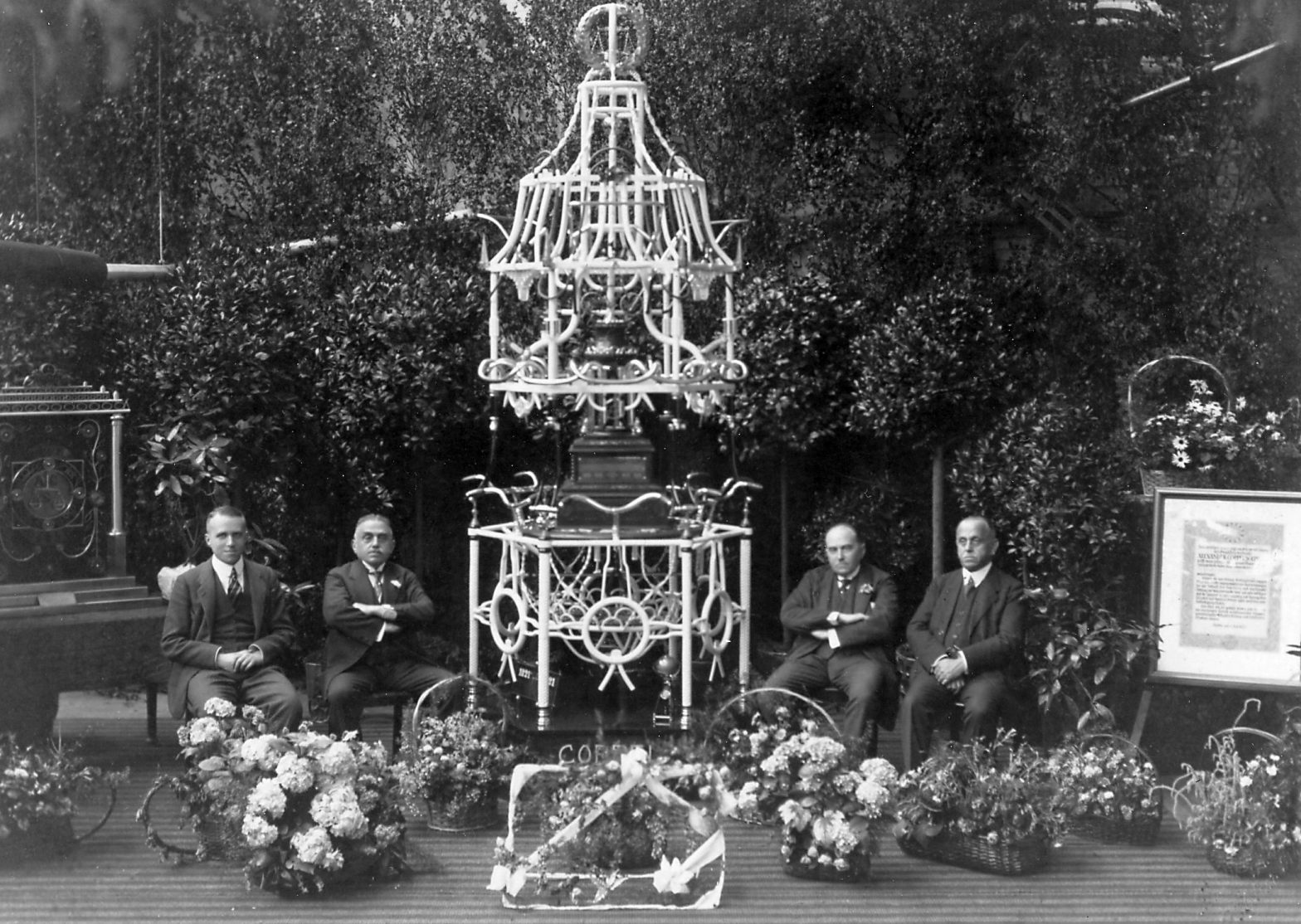Stop 8: The Jewish cemetery
Estherweg – go to map – go to starting point
We have now arrived at the last stop on our tour, the Jewish cemetery on Estherweg. After the synagogue was destroyed in 1938, the cemetery is the last visible sign of the old Jewish community in Solingen.
History of the Jewish cemetery
When the first Jews came to live in Solingen around 1700, a small Jewish community arose and they needed a prayer room and a burial ground. The “auf dem Clauberg” cemetery was first mentioned in documents in 1718.
Like all Jewish burial places, this cemetery was also created for eternity, since, according to Jewish belief, the dead will be resurrected body and soul when the chosen one of the Jewish people appears. How important the cemetery is to the Jewish people is also reflected in expressions such as “house of life” and “good place”.

The oldest gravestones are not preserved. There are still 180 graves in the cemetery today. The oldest gravestone from 1820 belongs to a woman who married into the Coppel family: Sophie Herz (1744-1820). She was the second wife of her husband Samuel Coppel senior (1745-1837), who was buried next to her. He was a butcher, but also dealt in haberdashery. For many years, he led the Solingen Jewish community. A total of 15 gravesites of the Coppel family have been preserved; the resting place of the family of the honorary citizen Gustav Coppel stands out in particular.
In April 1941, Lina Mandel née Silberberg was the last woman of Solingen to be buried in the Estherweg cemetery. Since then, the cemetery has been closed. These days, Jews from Solingen are buried in Wuppertal.
The cemetery is divided into the fields A, B and C. Field A is located on the left-hand side, as seen from the entrance. There are gravestones from the period 1820 to 1910 there. Seven graves belong to the Coppel family; besides Sophie Herz and Samuel Coppel, there are the children from the first marriage of Samuel Coppel senior with Jette Aron. Her gravestone no longer exists. The children buried in Solingen are Samuel Coppel junior, Salomon Coppel and Blümchen Coppel.
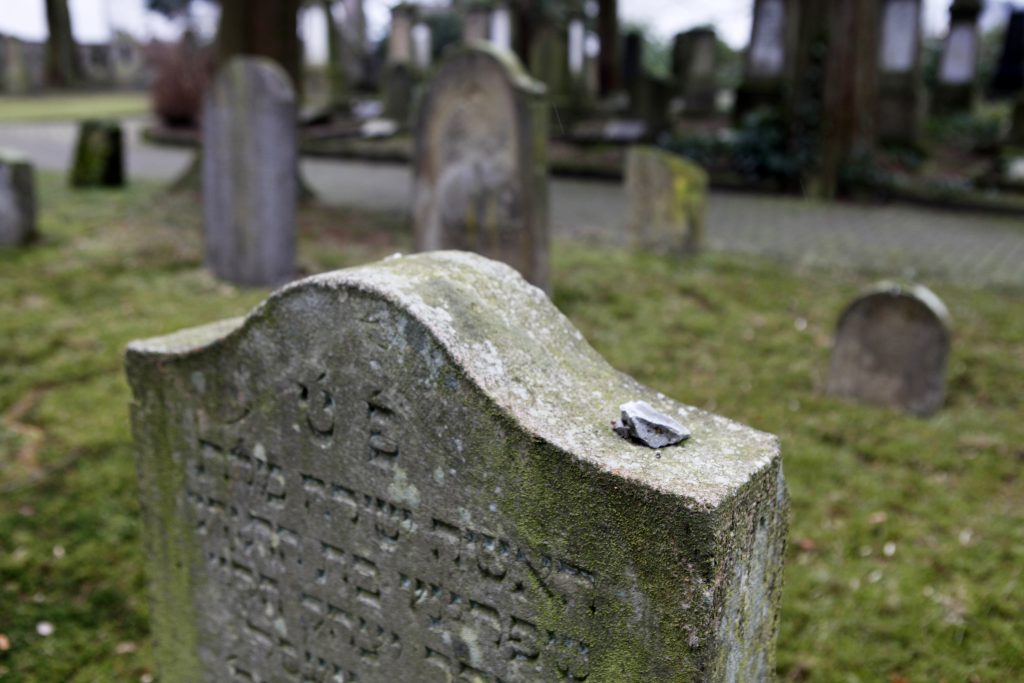
The youngest brother, Alexander Coppel (1795-1878), lies in burial ground B, which was occupied from 1876 to 1922. The Alexander Coppel company was founded on the day of his marriage to Elise Schubach (1803-1880) in 1821. The couple had eight children, and five of them are buried in the cemetery. The gravestone of Samuel Coppel (1822-1824) no longer survives. Fanny Coppel (1824-1885) and her husband Abraham Geisenheimer are buried next to each other. The brother, Arnold Coppel, is buried next to him. The sister, Julie, died at the age of 83.
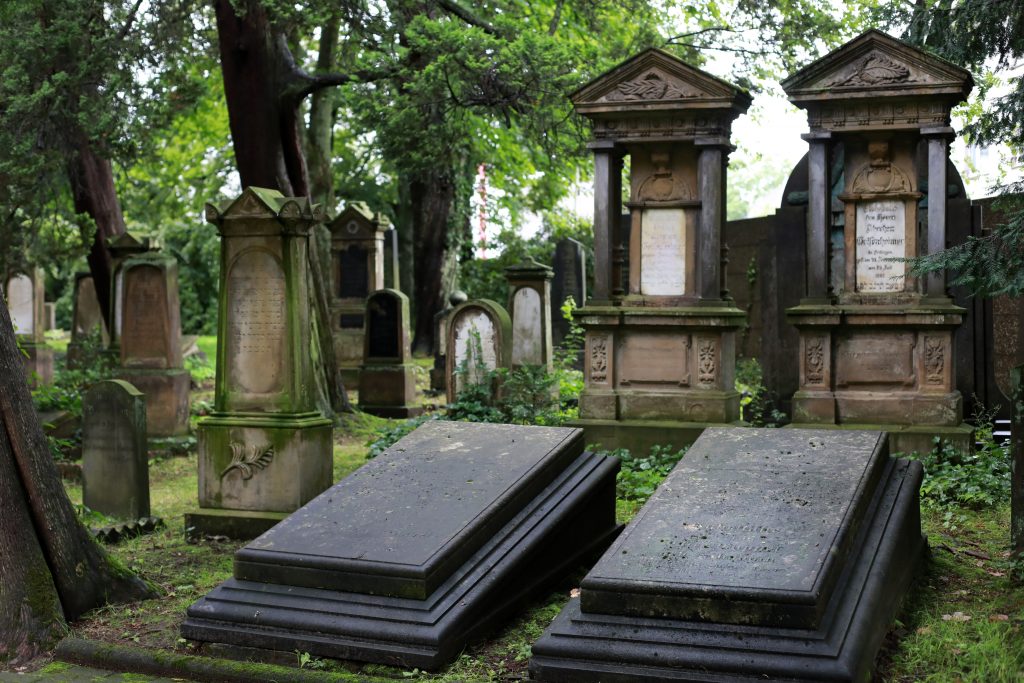
The honorary citizen Gustav Coppel is buried in the most recent burial ground C, which was used from 1908 until the cemetery closed. Besides his wife Fanny Katzenstein (1836-1922), their son Hermann (1859-1931) is also buried in this family grave.
Bronze-coloured memorial plaques, put up by the Jewish Cemetery After-School Group, commemorate the victims of the Holocaust from the family: the two sisters Anna Reiche and Martha Coppel, who were killed in Ravensbrück and Sobibor respectively in 1942. The name of Dr Alexander Coppel, who died in Theresienstadt, was added to the inscriptions on the family grave after the war.

The destruction of the cemetery chapel
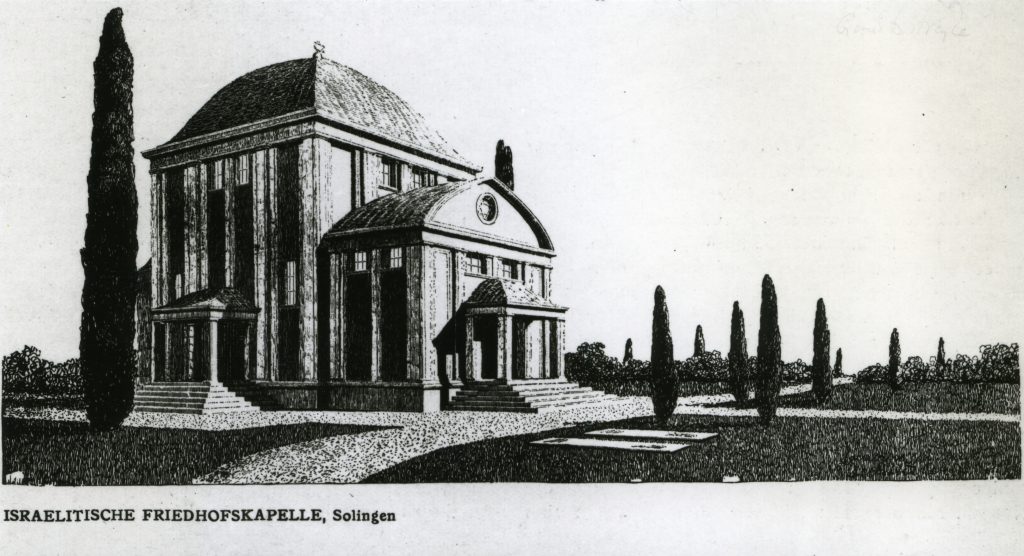
Until 1938, this was also the site of the cemetery chapel built between 1913 and 1914. The Coppel family had also donated a large amount of money for its construction. On 10 November 1938, at about one o’clock in the morning, the cemetery chapel was broken into. Chairs, benches and carpets inside the chapel were gathered and set on fire. At about 6 p.m., numerous men from the Sturmabteilung, or SA, came out of a restaurant with hoes and ropes and again went to the Jewish cemetery. Graves were desecrated, numerous monuments were overturned and demolished. Afterwards, an SA Pioniersturm tried twice in vain to blow up the roof of the cemetery chapel. Then the roof was set on fire.
The ruins were cordoned off and the city ordered them to be demolished in December 1938. In August 1939, the synagogue congregation applied to convert the still standing entrance vestibule into a small mortuary, but the city decided that “the reconstruction of the partially demolished cemetery chapel is not necessary”. The congregation was “requested to properly demolish the remaining ruins of the wall within 14 days and have the debris removed”.
In 1948, three former members of the SA Pioniersturm who had been involved in desecrating the cemetery and destroying the cemetery chapel were acquitted. One defendant was sentenced to 18 months in prison for crimes against humanity. He had carried out the blowing up of the chapel. Another was sentenced to one year in prison. He had set fire to the roof of the chapel with gasoline.
The “Jewish Cemetery After-School Group”
In the autumn of 1987, the mayor of Solingen, Gerd Kaimer, asked the then Solingen Comprehensive School if it would like to “adopt” the Jewish cemetery on Esterweg. After some preparation work, the new after-school group met for the first time on 11 February 1988, with Wilhelm Bramann as its director. When he retired, Michael Sandmöller took over the leadership of the after-school group in 1990, followed by Simone Sassin in 2017.
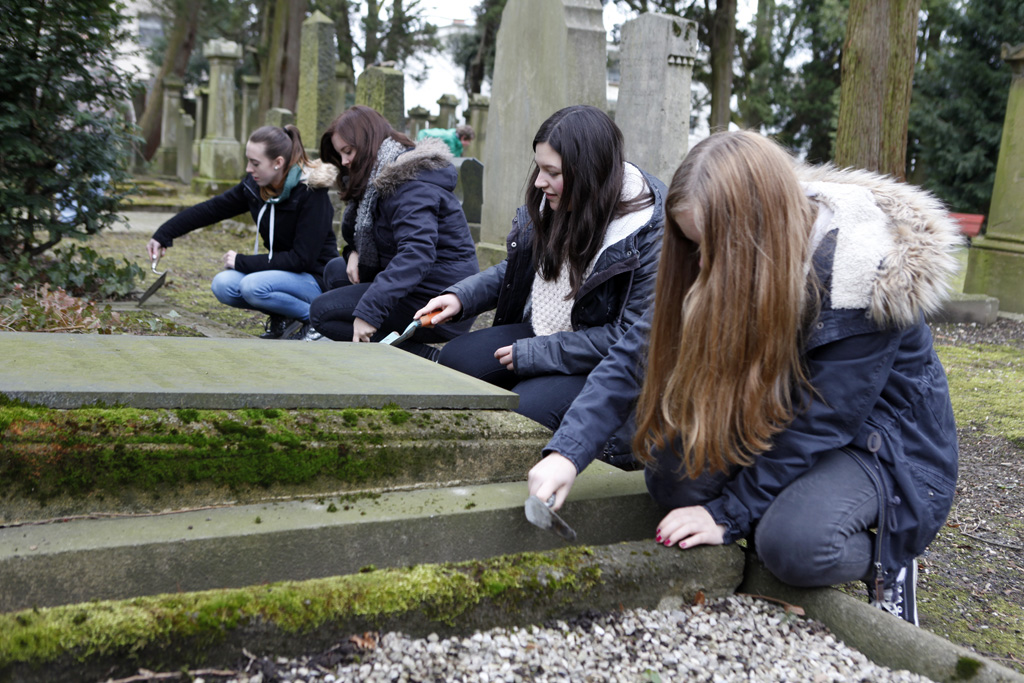
To date, there are four areas of work: cemetery maintenance;, correspondence with descendants who want to learn more about their family histories and to stay in touch; imparting knowledge about Jewish life, anti-Semitism past and present; as well as trips and taking part in events such as the commemoration of Kristallnacht (or the Night of Broken Glass), Kippah Day, the care of stumbling stones and visits to memorials.
In July 2021, descendants of Johanna Seligmann-Coppel visited the birthplace of their great-grandmother to make a documentary film about the ancestor who had tried to rescue relatives from Germany during the Nazi era from her exile in Switzerland. The filming was assisted by Daniela Tobias and Armin Schulte from the Solingen city archive. Despite the summer holidays, leader of the after-school group, Simone Sassin, made it possible to film at the cemetery and at the Alexander Coppel Comprehensive School. The intensive exchange and research during the visit are the start of a new connection!
Since December 1994, the work of the group of pupils has led to a regular school exchange with Israel. The 13th exchange in January 2020 – with a visit to Israel – sadly remained incomplete: the lockdown in March 2020 due to the coronavirus prevented the return visit of the Israeli group of pupils to Germany. However, this important work will successfully continue.
